Is it too early to say the U16 Asian Championship class of 2017 might be one of the best ever?
FOSHAN (China) - The standouts from the most recent U16 Asian Championship are still all under 21, but it is not an exaggeration to state that this might be one of the best class yet.
FOSHAN (China) - Is it ever too early to feel excited about young prospects? We say no.
The standouts from the most recent U16 Asian Championship are still all under 21, but it is not an exaggeration to state that this might be one of the best class of U16 Asian Championship starlets yet.
There’s still a lot more to expect from these young fellas, but let’s check in on how far they’ve come so far!
Witnessing Wigness and swag of Swaka
Australia’s first ever U16 Asian Championship was a smashing success as they ran through the competition for a gold medal.
In typical Emu basketball fashion, it was a team effort where they had four players average double-digit scoring, so it wasn’t exactly easy to pinpoint their outstanding stars. Even though it’s not all about scoring, the two top scorers for Australia at this competition have taken significant steps forward in their careers since.
Tamuri Wigness was the second youngest player on the team that year, but put on a show in Foshan to show why he was one of the most intriguing prospects in that batch as well. The quick guard finished with 14.8 points, 4.0 rebounds, 3.8 assists, and 3.0 steals per game while shooting the lights out. In the Semi-finals matchup against New Zealand, Wigness went perfect (7-7) from the field to finish with 25 points.
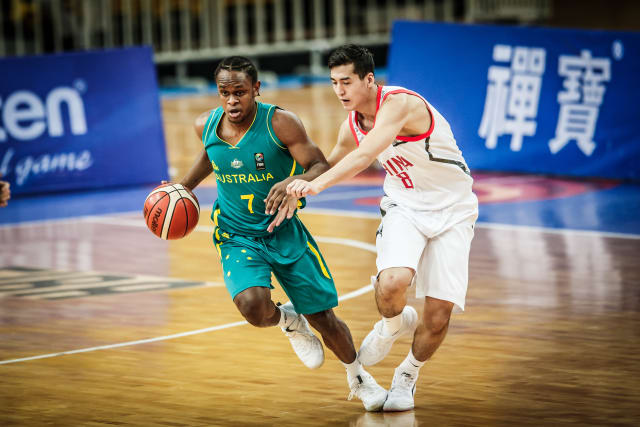
Aside from participating in both the 2019 and 2020 Basketball Without Borders Gloabl Camps, Wigness has also went on to play in the U17 World Cup 2018 and U19 World Cup 2019 while also winning it all at the U18 Asian Championship 2018. He’ll also be suiting up in the National Basketball League (NBL) in the upcoming season for the Brisbane Bullets.
Backcourt partner Wani Lodu Swaka Lo Buluk also had quite a performance himself.
Swaka Lo Buluk matched Wigness with 14.8 points per game and made it rain from downtown, making 13 of 30 attempted three-pointers. He was particularly on fire coming out of the Group Phase, where he connected on 47.8 percent of his three-pointers from the Quarter-finals to the title game.
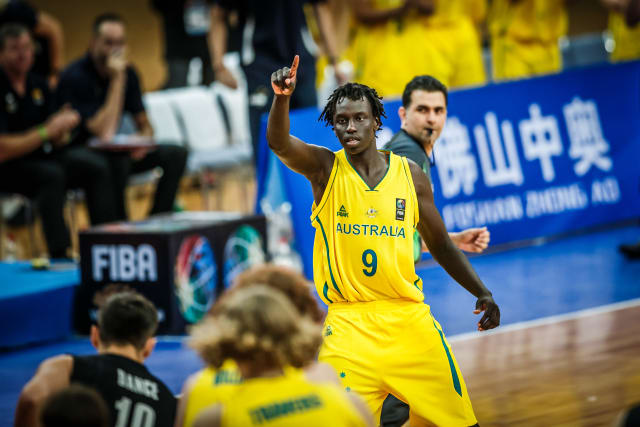
Swaka Lo Buluk has actually had quite the headstart in his professional career as well, having already suited up for the defending two-time NBL champions Perth Wildcats for the past two seasons.
Triple-threat
Tuxun Aizmaiti, Xierzhati Saimaiti, and Lu Pengyu were all ready to make their senior national team debuts for China in Window 1 of the FIBA Asia Cup 2021 Qualifiers before the basketball world took a halt due to the COVID-19 pandemic.
If that had gone through, it would have been a quick leap from starring on the youth national teams just less than 2 years earlier.
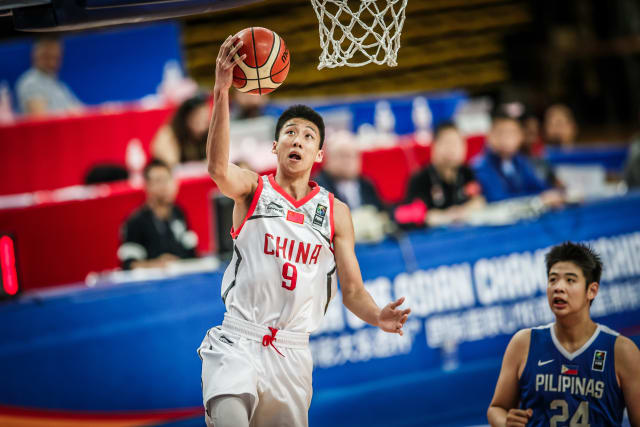
Lu was the most efficient players on the team for China and ranked among the top 3 on the team in points, rebounds, and assists. Tuxun and Saimaiti both had solid games across the board, making it no surprised why they were initially named to play in the opening window of the Qualifiers.
Sky High for Kai
The Philippines might not have won a medal in Foshan, but they just might have had the best overall prospect to boast on their roster in Kai Sotto.
The seven-footer was still relatively unknown to the basketball world at that point, but it didn’t stay that way for long. Sotto erupted for consecutive 20-point, 20-rebound games against Japan and China before ending up with an average of 16.8 points, 13.5 rebounds (led tournament), and 2.5 blocks per game. Sotto’s stock has only shot up the roof from there after starring in both the U17 and U19 World Cups in the successive years.
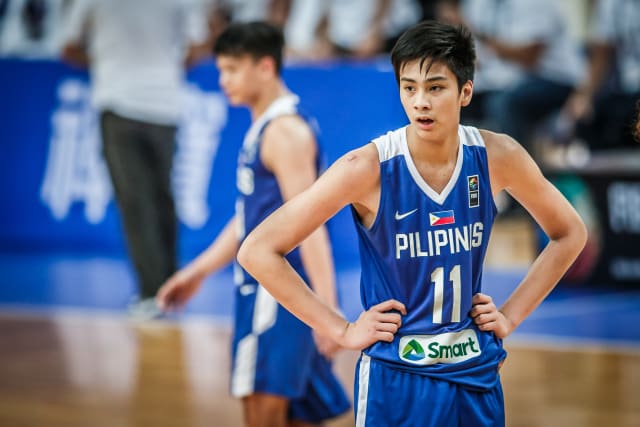
After an appearance in the BWB Global Camp 2020, Sotto is now on his way to play in the NBA G-League in the upcoming season and it is not crazy to imagine that he is on path to be the next NBA player to come out of Asia. Who knows? Maybe in the next few years, we’ll be looking back at the U16 Asian Championship 2017 as the starting point of the superstar Sotto story.
Next Wave could be a Tsunami
Japan had already seen the rise of a superstar out of the U16 Asian Championship competition back in 2013 when Rui Hachimura began making a name for himself. Though the 2017 edition doesn’t seem to have a star of Rui’s magnitude (yet), there are several other players worthy of your attention in Keisei Tominaga, Chikara Tanaka, and Yuki Kawamura.
Tominaga wowed everyone with his ability to shoot the lights out, highlighted by 7 and 5 threes against India and Lebanon, respectively. He ended up leading Japan with 17.5 points per game on a blazing 42.2 percent clip shooting from beyond the arc.
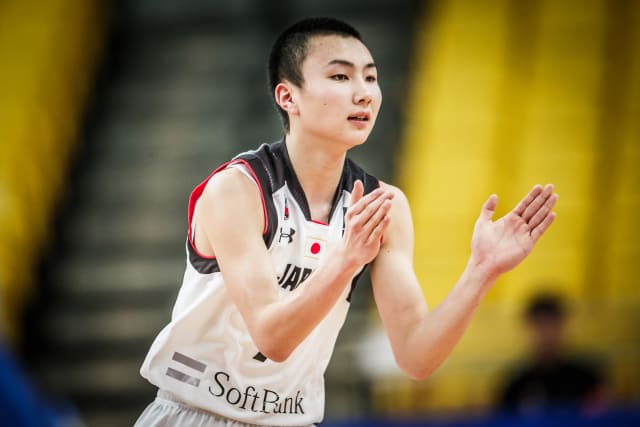
He’s done well to maintain his reputation as a sharpshooter and it’s earned him the opportunity to play at the collegiate level in the US. He’s spent the last year playing at Ranger College and will do so for another year before transferring to play for the Nebraska Cornhuskers, coached by former NBA sharpshooter Fred Hoiberg.
Behind Tominaga in scoring was Chikara Tanaka, who put up 15.2 points per game. Tanaka was specifically spectacular in the game against the Philippines where he nearly willed Japan to a comeback win with 17 points on 4 three-pointers. More impressively, Tanaka was actually the youngest player on the squad at the time at just 15 years old.
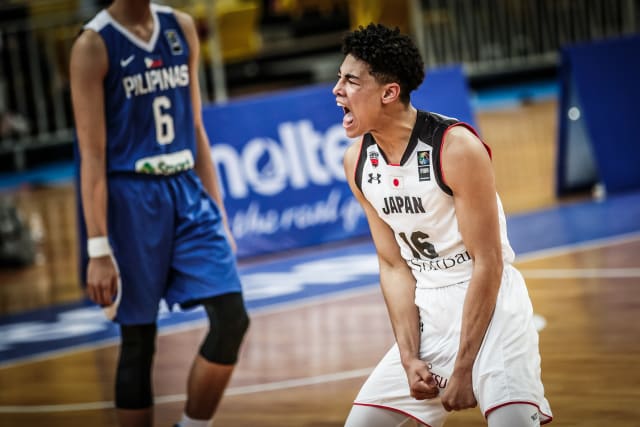
In this past year, Tanaka has been developing his game at IMG academy in the US as one of the featured guards on the team. High hopes and expectations have been set on Tanaka, who is already said to have been eyed by several colleges in the NCAA.
Both Tominaga and Tanaka were part of the BWB Global Camp back in 2019.
Though Yuki Kawamura has not had the chance to play in the US as his two other featured teammates have, he’s doing pretty well nonetheless. The floor general led the team in assists with 4.3 per game, also good for 3rd among all players in the competition. He was also stellar against Korea with 13 points, 7 rebounds, 4 assists, and 4 steals to his name.
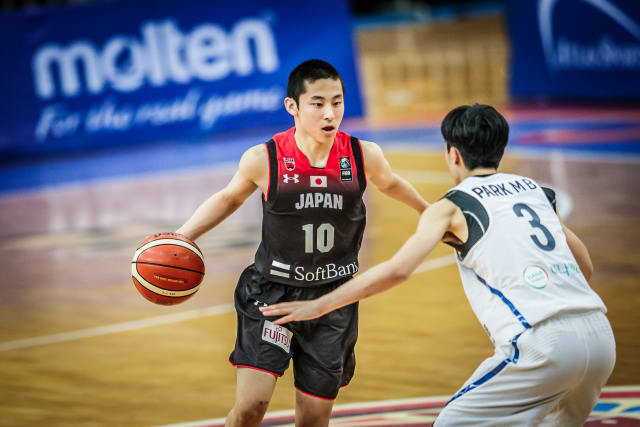
Last season, Kawamura played in Japan unlike Tanaka and Tominaga. However, in the case of Kawamura, he got the chance to play in the Japanese B.League with SanEn Neo-Phoenix as a special designated player. He immediately shined from his very first game and finished with averages of 12.6 points and 3.1 assists per game through the season.
Steady Vahedi
Matin Aghajanpour stood out as that guy for Iran in Foshan as the tournament’s leading scorer (23.2 points per game), but it was indeed arguable whether Mohammadsina Vahedi was just as important for the team.
Vahedi might not have been as explosive in scoring as his backcourt teammate but he led the team in minutes players and assists, all the while dropping a cool 12.2 points per game. He was even able to record a double-double of 15 points and 10 assists in their final game against Lebanon.
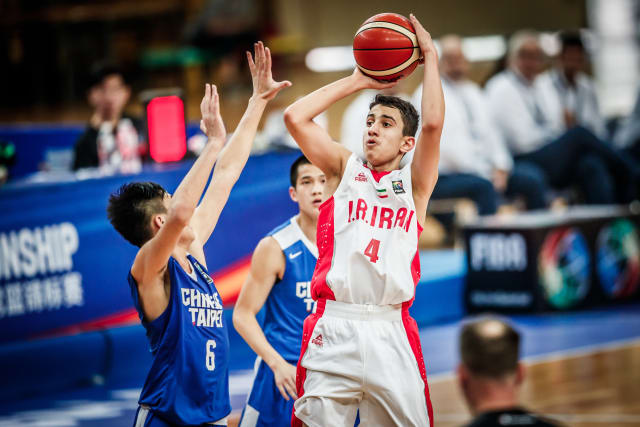
Only a few players in this entire class have already been able to play on the senior national team squad and Vahedi is one of them. The 19-year-old saw 20 minutes of action against Qatar in Window 1 of the FIBA Asia Cup 2021 Qualifiers and put up 4 points, 1 rebound, and 2 assists.
Under the Radar
Ma Chien Hao was not among one of the big time performers for Chinese Taipei in Foshan. In 20.0 minutes per game, Ma scored only 9.0 points on 28.6 percent shooting from the field to go with 6.0 rebounds per contest.
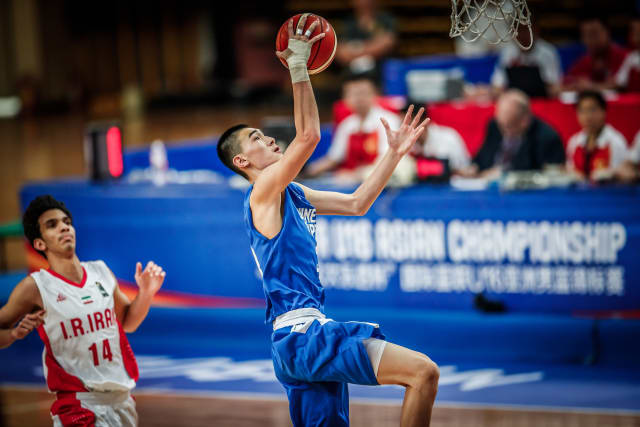
However, Ma has taken big steps forward since playing in Foshan and has emerged as a promising prospect for the senior national team in the future. The lanky 2.01M (6’7”) forward went on to star for Chinese Taipei at the FIBA U18 Asian Championship later in the same year, averaging 16.3 points per game which ranked among the top 10. Following that breakout performance, Ma then went overseas to play in the US and teamed up with aforementioned Kai Sotto at The Skillz Factory in Atlanta.
Waiting to take the Throne
Princepal Singh had quite a coming out party in Foshan, exploding for 28 points and 17 rebounds against Korea in his very first game. He followed that up with another double-double against Japan and ended up with averages of 22.7 points and 13.0 rebounds per game.
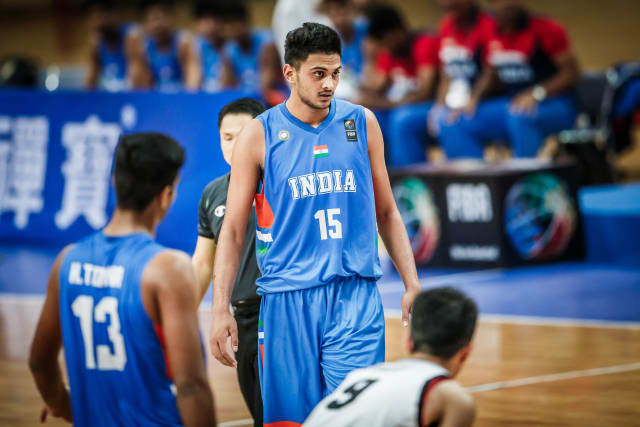
Much was expected from the 2.08M (6’10”) forward and he continued to deliver. Princepal starred again at the U18 Asian Championship 2018 in Thailand, this time finishing with averages of 15.5 points and 9.8 rebounds per contest. Earlier this year, he has already stepped up to play on the senior national team in the first window of the Asia Cup Qualifiers.
There’s even more excitement up ahead for India basketball fans after it was recently announced that Princepal has signed up to be a part of the NBA G-League select team, joining forces with Kai Sotto. He’ll be the 4th Indian to have ever played in the G-League.
Quiz Maker - powered by Riddle
FIBA